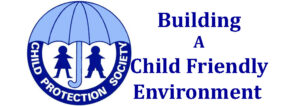Health and Nutrition
Health and Nutrition
Child Protection Society (CPS) has a history of supporting children affected by or living with HIV. Key components of supporting this group of children are ensuring access to treatment and care services, as well as nutritional support. Under the health and nutrition thematic area, CPS coordinates the following programs
PAEDIATRIC HIV
CPS implements evidence based and cost-effective interventions in collaboration with the Ministry of Health and Child Care (MoHCC) that detect undiagnosed paediatric HIV infections decreasing child mortality. The interventions increase uptake of timely paediatric HIV testing and improve positive health outcomes for children living with HIV and HIV exposed uninfected children. To date the organization has reached thousands of children living with or affected by HIV. The HIV infected children are supported to access health services at local clinics through provision of user fees, bus-fares, and age-appropriate support groups to enhance their HIV knowledge and way of living.
To further support this, Child Protection Society has reached over 4,000 mothers with Early Childhood Stimulation for the prevention of problems such as wasting, mother to child HIV transmission and malnutrition. The intervention also educates mothers on how to stimulate their children’s development in their early years for positive outcomes in the achievement of developmental milestones in future..
Sexual Reproductive Health and Rights (SRHR)
CPS coordinates sexual reproductive health interventions that are aimed at increasing access to youth friendly information and services for young people. Also, CPS integrates sexual reproductive health in its programming and young people are empowered to make informed decisions and a health enterprising lifestyle to reduce new HIV and STIs infections and unplanned pregnancies. CPS has reached Community Case Care Workers, and Community Health Workers with comprehensive sexuality education. It has also implemented the Youth Empowerment Program which has been replicated in several districts. Through this intervention young people are equipped with economic, social, and cognitive assets, as well as paired with mentors who provide them with a trusted person in their lives to positive guide and mould them into responsible citizens.
Menstrual Hygiene Management
CPS mobilizes resources for menstrual hygiene management for girls on the move, living on the streets, and survivors of sexual gender-based violence. The aim is to ensure that girls have adequate information, support, and enabling environment for managing menstruation with dignity, safety, and comfort. A total of 786 girls have been assisted to date.

Mental Health and Psychosocial Support
CPS promotes mental health and psychosocial support targeting children on the move, minor survivors of sexual gender-based violence and children living with HIV. Mental health screening is coordinated to ensure that children are linked to the appropriate mental health services. CPS works together with Ministry of Health and Child Care, Department for Social Development, Community Case Care Workers and Community Health Volunteers in promoting mental health.
Promoting positive nutrition outcomes and adherence through food packages
CPS provides nutritional support to children placed in foster care, children on the move at reception centres and children reunified with their families and children living with HIV who come from constrained socio-economic backgrounds. Food packages are provided to malnourished children to help boost their nutritional status and promote adherence for children living with HIV. Anthropometric measurements through the centre clinic and volunteer community health workers are measured in order to monitor their nutritional status of children receiving nutritional support. This is also an area for individuals and corporate to support as this is a daily need for children in need.
School Health Assessments
Child Protection Society has worked with City Health to assess the health and wellbeing of over 30,000 children in primary schools. These drives to support the mandate of the Ministry of Health and Child Care to conduct annual health assessments of children in communities. Through clinic block grants with local health facilities children with identified ailments have been able to get consultation and treatment for issues varying from skin conditions to dental problems. Further, partnering with the School Psychological Services, children with learning challenges were identified and schools supported to understand their learning disability and provide education that aligns to the children’s needs.
